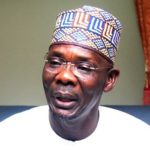Minister of finance, Zainab Ahmed has said the Federal Government was considering a new benchmark for oil revenue to fund the 2020 budget.
According to her, the new proposed rate of $30 per barrel benchmark as against the $57 per barrel benchmark on which the 2020 budget was passed was considered realistic following the level at which oil prices have plummeted in the wake of COVID-19.
The review was based on the reality of the impact of the coronavirus pandemic that has dealt a fatal blow on the global economy.
Nigerian Tribune reports that Ahmed said this during a meeting between the leadership of the national assembly and the minister of finance and some head of agencies critical revenue generation for the economy.
According to Ahmed, in view of Nigeria’s economic realities, the Crisis Management Committee constituted by President Muhammadu Buhari in response to the COVID-19 and Oil Price Decline Crisis expressed concern that “the decline in international oil prices or domestic production may be magnified if a severe outbreak of the pandemic occurs in Nigeria.”
Accordingly, the Finance Minister proposed a review of the 2020 budget using a US$30 per barrel price benchmark as against USD$57 initially passed in December by the National Assembly, to prepare for the worst-case scenario, as well as insulate the Nigeria economy against any form of unexpected crisis.
She also told the leadership of the National Assembly that budgeted revenues for the Nigeria Customs Service have been reduced from N1.5 trillion to N943 billion “due to anticipated reduction in trade volumes; and privatisation proceeds to be cut by 50 per cent, based on the adverse economic outlook on sales of the Independent Power Projects (IPPs) and other assets.”
ALSO READ: COVID-19: NCDC takes Nasarawa gov’s sample, as he goes on self-isolation
Similarly, Ahmed disclosed that the “Federal Government has undertaken cuts to Revenue-related expenditures for the Nigerian National Petroleum Corporation (NNPC) for several projects included in the 2020 Appropriation Act passed by the National Assembly in December 2019.
“The Federal Government is working on Fiscal Stimulus Measures to provide fiscal relief for Taxpayers and key economic sectors; incentivise employers to retain and recruit staff during the economic downturn; stimulate investment in critical infrastructure; review non-essential tax waivers to optimize revenues, and complement monetary and trade interventions to respond to the crisis,” the finance minister disclosed.
She added that the Federal Government had made provision for health sector interventions by introducing import duty waivers for essential input for pharmaceutical firms; tax waivers on new equipment; and deferment of tax to increase production.
The finance minister said that the sum of one billion naira would be released by the government to pharmaceutical firms in the country.
WATCH TOP VIDEOS FROM NIGERIAN TRIBUNE TV
- Let’s Talk About SELF-AWARENESS
- Is Your Confidence Mistaken for Pride? Let’s talk about it
- Is Etiquette About Perfection…Or Just Not Being Rude?
- Top Psychologist Reveal 3 Signs You’re Struggling With Imposter Syndrome
- Do You Pick Up Work-Related Calls at Midnight or Never? Let’s Talk About Boundaries







